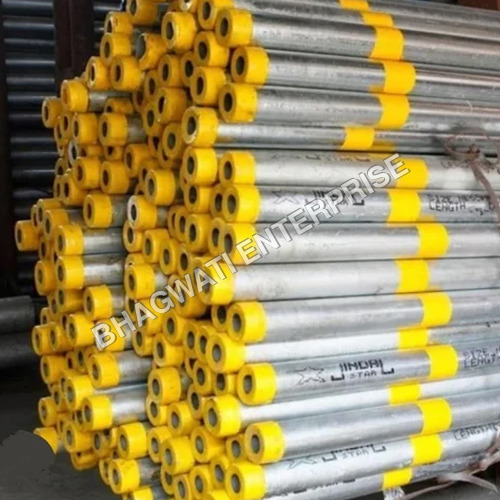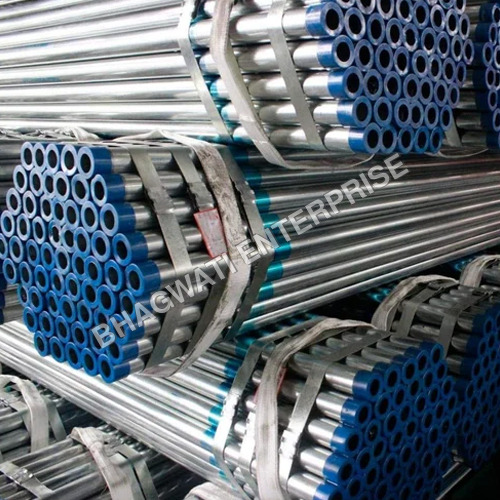Jindal GI Pipes
Jindal GI Pipes Specification
- Type
- Galvanized
- Feature
- High quality
- Product Type
- Galvanized Iron Pipes
- Material
- Iron
- Shape
- Reducing
- Length
- 6 Meter (m)
- Color
- G.I.
- Warranty
- Yes
Jindal GI Pipes Trade Information
- Minimum Order Quantity
- 100 Kilograms
- Payment Terms
- Cheque, Cash Against Delivery (CAD), Cash on Delivery (COD), Cash Advance (CA), Cash in Advance (CID)
- Supply Ability
- 5000 Kilograms Per Month
- Delivery Time
- 1 Days
- Sample Available
- No
- Sample Policy
- Sample costs shipping and taxes has to be paid by the buyer
- Packaging Details
- Bundle Packing
- Main Export Market(s)
- Asia
- Main Domestic Market
- All India
- Certifications
- Mill T.C.
About Jindal GI Pipes
BHAGWATI ENTERPRISEis a leading Company that deals with steel GI Pipes in India. We are one of the premierGi Pipes Suppliersthat delivers specific iron pipes for all types of plumbing needs with quality products for export. To provide the grating for sale, we employ first-grade steel materials coated with zinc, making it rust-resistant and strong. AtBHAGWATI ENTERPRISE., these pipes pass through a strict galvanization process that makes the pipes more suitable for use in different areas. Our manufactured GI pipes contain several outstanding features, including:
- Provide smooth water flow
-
Buy G.I. pipe online in bulk
-
G.I. pipe price per meter
-
G.I. pipe Stockists near me
-
G.I. pipe distributors Vadodara
-
Industrial galvanized pipe for sale
-
Low-cost G.I. pipes bulk order
-
G.I. pipe manufacturers In Gujrat
-
Galvanized iron pipes suppliers Vadodara
-
G.I. pipe dealers in India
-
Industrial G.I. pipes
-
Heavy-duty galvanized pipes
-
G.I. pipe wholesalers Suppliers In Vadodara
-
Hot-dip galvanized pipe
-
Galvanized pipe with threaded ends
-
ISI marked G.I. pipe
- Dealers of G.I. Pipe, Flats, G.I. Box Pipe, Rectangular Pipe,
- Hot Dipped Galvanized Pipe.
-
The top 10 GI Pipe manufacturers are
-
The top 10 GI Pipe Suppliers in India.
- Electro Galvanized Pipe
- Matte Finish GI Pipe
- Regular Spangle Galvanized Pipe


Price:
- 50
- 100
- 200
- 250
- 500
- 1000+
More Products in GI Pipe Category
Jindal G.I.Pipes
Price 75 INR / Kilograms
Minimum Order Quantity : 100 Kilograms
Feature : High quality
Length : 6 Meter (m)
Size : All Size
Grade : A106 Gr.B






 Send Inquiry
Send Inquiry Send SMS
Send SMS